A New York property where a mobster ran a moonshine business during Prohibition is now on the market for $5.5 million and he may have buried treasure worth millions on the land
Maria Noyen

- The owner of a New York distillery bought it after learning of its murky Prohibition-era backstory.
- He said the land was used for an illegal moonshine operation by mobster Dutch Schultz in the 1930s.
A modern barn that's home to a distillery 2 hours north of New York City has hit the market for $5.5 million.
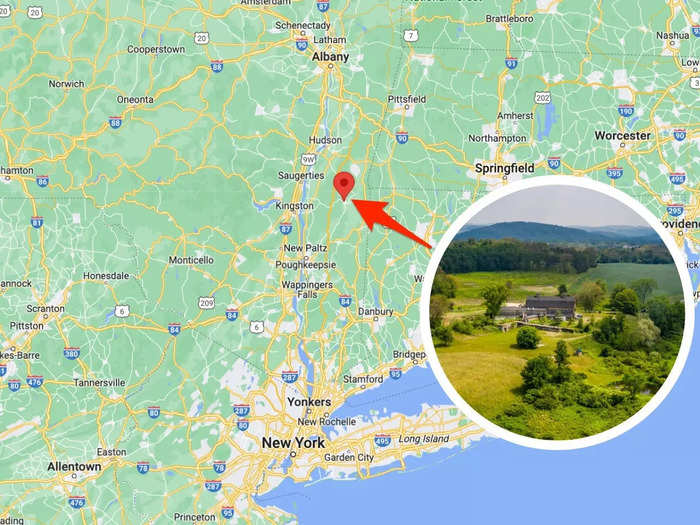
Located roughly 100 miles north of New York City, Harvest Homestead hit the market for $5.5 million earlier in July. The 343-acre property, which is near the quiet hamlet of Pine Plains, comes with several buildings, including a barn that houses a modern distillery.
According to the listing with Houlihan Lawrence, the origins of the property date back to the 1930s.
It was bought and renovated by its current owner, Ariel Schlein, in 2008. Schlein, a former Wall Street financier, told Insider he was introduced to the area by a college buddy, Alex Adams, whose family had previously owned the land for over 40 years.
During the financial crisis, Schlein said he and Adams would visit the land to get away from the city. That year, they had their Eureka moment, he said. After learning New York state was softening restrictions on smaller craft distilleries, they decided they would start one themselves on Adams' family's land.
What's more, he said they did so knowing they'd be continuing the legacy of the site, which he said once held the largest bootlegging operation in Dutchess County during Prohibition, a period between 1920 to 1933 when the production, transport, and sale of alcohol in the US was outlawed.
Schlein got to know the murky backstory of the land through Adams, whose grandfather worked as an errand boy when the site was used to make illegal moonshine in the 1930s.
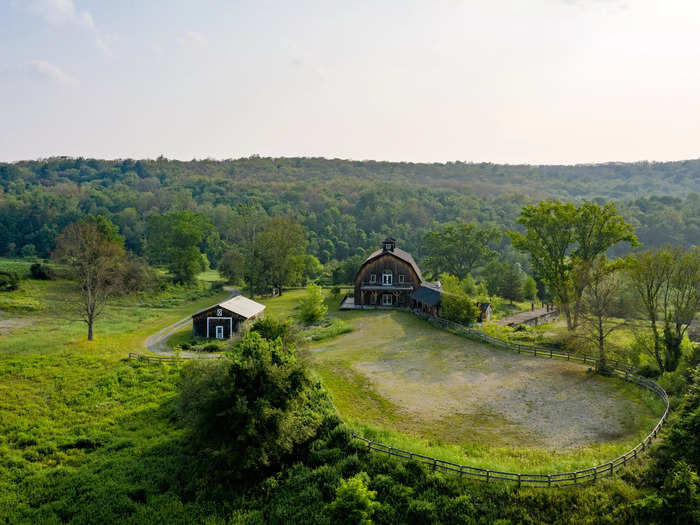
Schlein, who met Adams during college at the University of Chicago, said much of what he's come to learn about the origins of Harvest Homestead was through his friend's family.
He said Adams' grandfather, Charles Adams, bought the property with his wife 30 years after he had worked as an errand boy at the illegal distillery when he was just 16.
The bootlegging operation, which produced sugar-wash moonshine, was located exactly where Harvest Homestead stands today, Schlein said. For nine months in early 1932, it successfully ran outside of the law until it was raided by federal agents.
During an FBI raid, roughly 2,000 gallon stills, 10,000 pounds of sugar, and 1,000 gallons of moonshine were reportedly uncovered in a network of bunkers and tunnels.
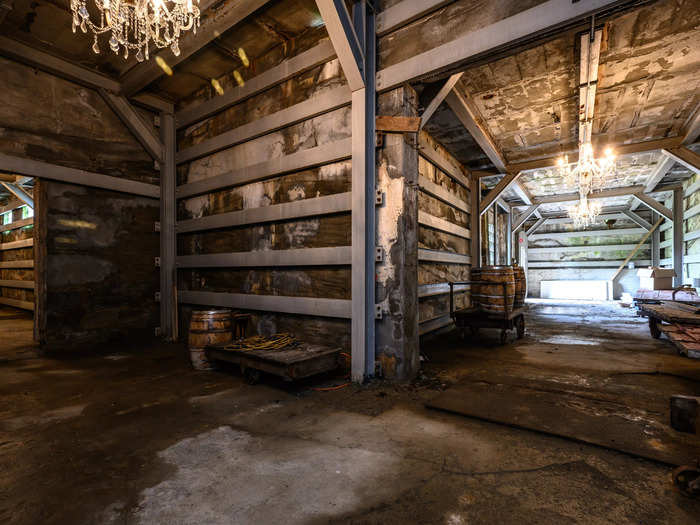
Schlein, whose distillery's website reported details of the raid, said the federal agents destroyed everything they could during the raid.
"Most of the staff escaped through the tunnels," he said.
Schlein added that the takedown was as ruthless as it was because it happened toward the end of Prohibition. "Enforcement towards the end stepped up quite a bit," Schlein said.
But the officers couldn't destroy the bunkers and tunnels themselves, which Schlein was able to resurrect.
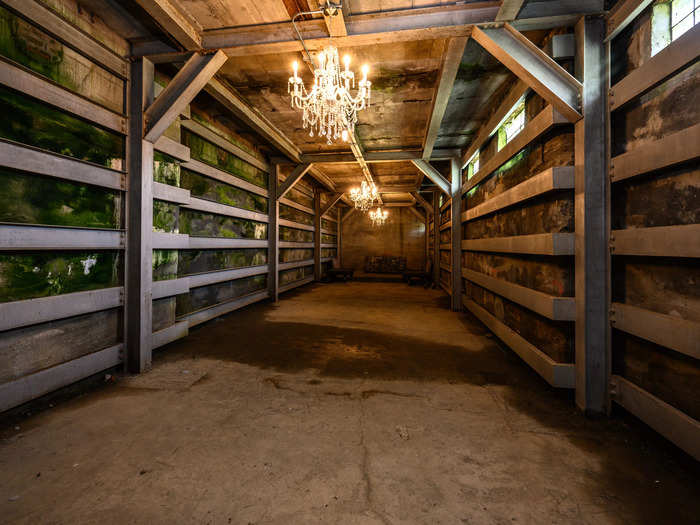
"They couldn't destroy 2,000-square-feet of bunkers," Schlein said. "These bunkers and tunnels, they were made of concrete 24 inches thick with steel running through it."
When the renovation process began, he said he worked with archaeologists to ensure the tunnels and bunkers were not just structurally sound enough to welcome guests for tours below what would eventually become the modern distillery, but so that history was preserved.
The property is now eligible for the National Register of Historic Places, according to the listing.
What's more, the illegal distillery was operated by a legendary American gangster, who is rumored to have left treasure buried somewhere on the land, Schlein said.
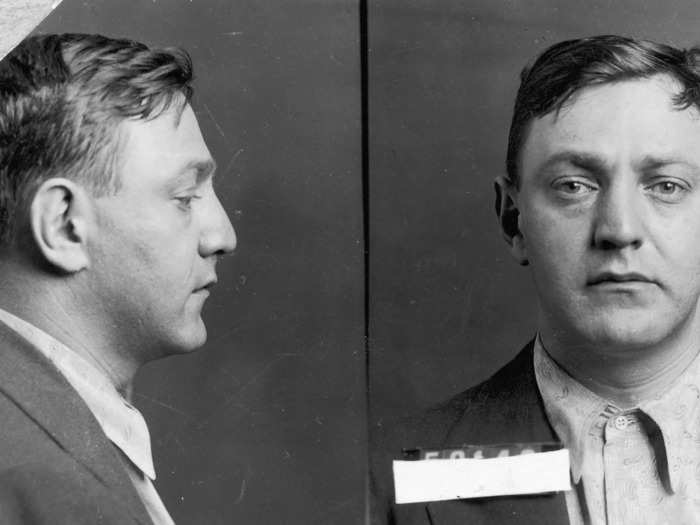
According to the listing, Arthur "Dutch Schultz" Flegenheimer, was the No. 1 suspect behind the illegal moonshine operation.
Schultz rose to notoriety by creating his own enterprise and overseeing a gang that sold illegal batches of alcohol throughout New York City during Prohibition, according to the FBI. Not surprisingly, he had several run-ins with the law as well as enemy mobsters.
But Schultz's empire came crumbling down one night in October 1935 when he and four of his associates were shot at a restaurant in New Jersey. He died the following day.
Nevertheless, rumors continue to this day that before he was killed, Schultz stashed treasure somewhere in Upstate New York, according to local reports. Schlein told Insider that some even suspect it's hidden on the land Harvest Homestead sits on today.
"One of the stories that gets bandied about is that Dutch Schultz, before he died, reportedly buried a treasure somewhere in Upstate New York, a chest of gold coins and bonds," Schlein said. "The figure that gets tossed around is somewhere around $6 million in value."
While Schlein never found the treasure, he did say there have been hunts to find it over the years.
Beyond Harvest Homestead, some treasure seekers believe the loot may be hidden in the Catskill Mountains where the Times Union reported there have been multiple hunts through the decades. The publication reported the treasure's bounty could be worth closer to $100 million today.
Schlein said he was determined to reinstate Schultz's moonshine-making operation — but legally this time.
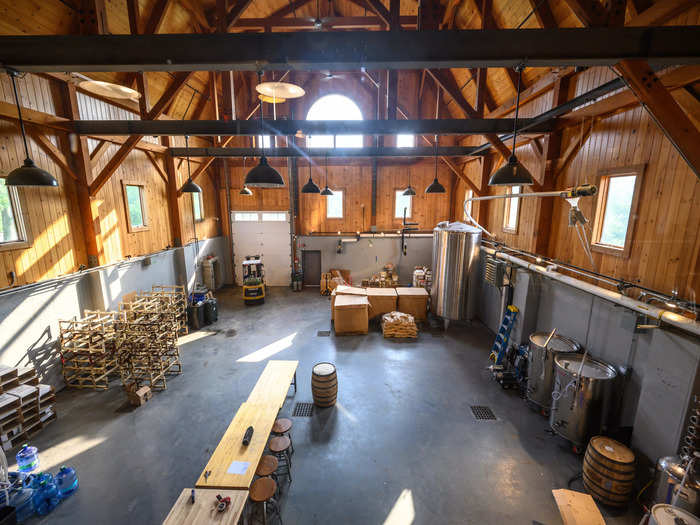
Schlein declined to say how much he spent on renovations, which were completed in 2014.
However, he did say a lot of funding went toward excavating the existing bunkers and tunnels, as well as building the new Dutch gable-style barn where the modern distillery, named after Shultz himself, runs today.
"It really was like I was carrying on the plans when the site was built back in '32 or '31," Schlein said. "Had Prohibition ended two years sooner, Dutch's Spirits might have still been around, and then it would be the fully functioning legal distillery."
Schlein's distillery produced sugar-wash moonshine, which is almost like vodka, he said.
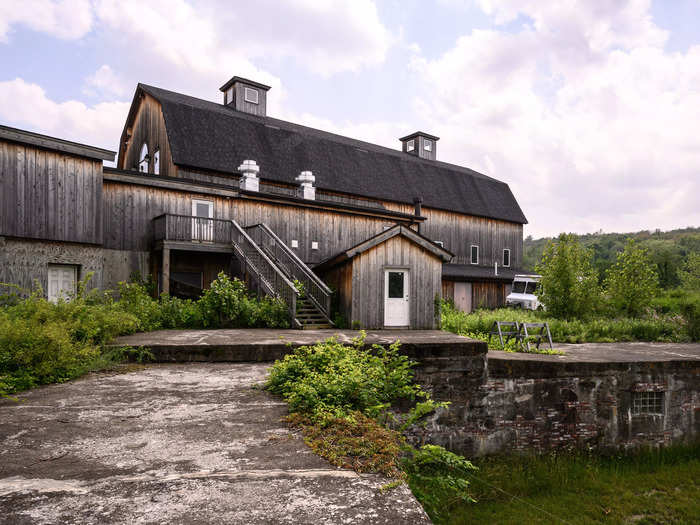
"At its height, when we were really pushing through with distribution, we had about 30 employees between the site and out in the field," Schlein said.
And like its predecessor, the modern distillery was in the business of selling sugar-wash moonshine.
"That was what Dutch Schultz was making on the site in 1932 when it was raided," Schlein said. Unlike most moonshine, which is generally made with corn or wheat, Schlein said his was made using raw Demerara sugar.
"It's distilled like a vodka, so it's essentially a brown-sugar vodka," he said, adding that the result is a much sweeter, more neutral, clean spirit than what is typically associated with moonshine.
Ultimately, Schlein said he went down that path because he "really wanted to pay a homage back to what was actually being distilled on the site" back in the day.
Though he didn't have a background in alcohol production, Schlein couldn't help but be drawn into the history of the land.
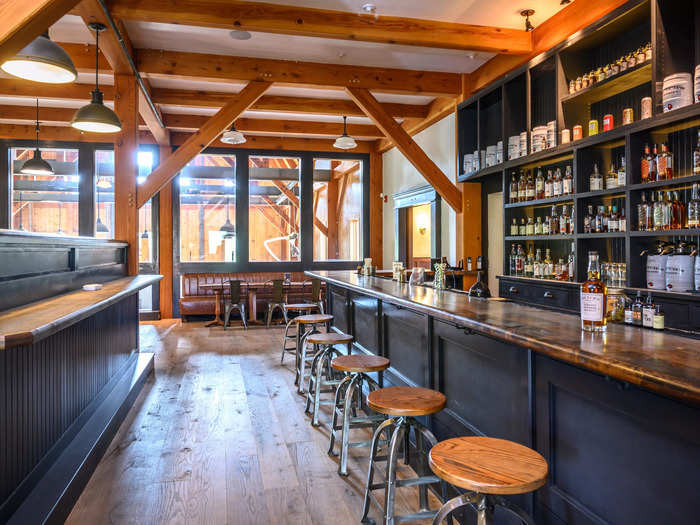
The land and tunnels were in "poor, poor shape" when Schlein got involved in the project, he said. But despite that — and despite the fact he said he had no background in alcohol production — he couldn't help but be captivated by legendary origins of Harvest Homestead and want to "carry on the legacy" and Dutch Schutlz's "unfinished work."
The newly constructed Harvest Homestead buildings, which are connected to the underground tunnels and bunkers, come with a state-of-the-art-distillery, commercial kitchen, and a tasting room, which Schlein used to welcome visitors and run tours.
Other modern touches Schlein added include a set of solar panels on the roof of the main barn and another set on a smaller building on the land, which he said provide "more or less enough [energy] to feed the electrical needs of the site."
Nods to the past are sprinkled around the property, including a portrait of Schultz in the tasting room.
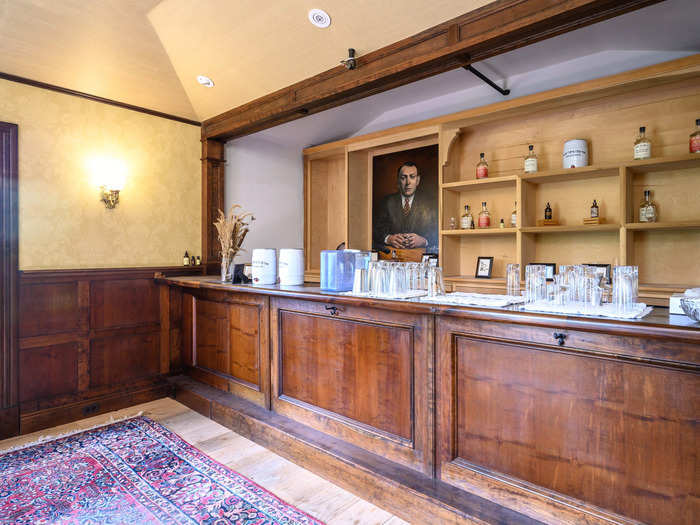
Once renovations were completed, Schlein said he opened up the property to the public in various ways.
"It's been used for tours, tastings, events. It's been used as a blending and bottling facility," he said. "We've had weddings there, birthdays there, concerts."
"It's really a very special place that kind of lends itself to being experienced," Schlein added. "It's at its finest when people are there to rediscover it for themselves."
One of Schlein's favorite spots is a balcony off one of the parlors that provides sweeping views of the surrounding countryside.
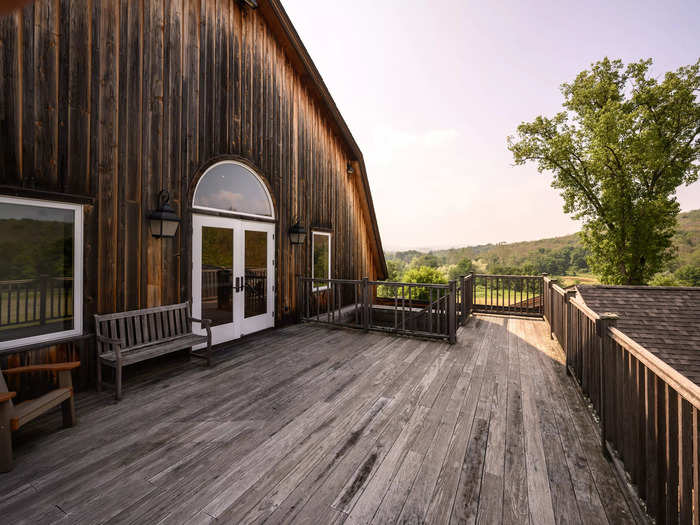
"Just sitting out there when the sun goes down, it's absolutely picturesque," he said. "It's a pretty special place."
And while it is close to the Pine Plains village, the property is private and well concealed from nearby roads.
Andrew Gates, the Houlihan Lawrence listing agent for the property, echoed Schlein's sentiments. Speaking to Insider, Gates said its setting on the Shekomeko Creek also makes it unique. Because of that, Gates said the property has already seen a lot of attention.
"We've already had one significant person from the hospitality space look at it and another person who's coming in August who's a significant person in the world of distillery and whiskey," he said. "We're pretty excited."
And while Schlein is proud that he brought Harvest Homestead back to life, he said he's ready for a new owner to continue Schultz's legacy.
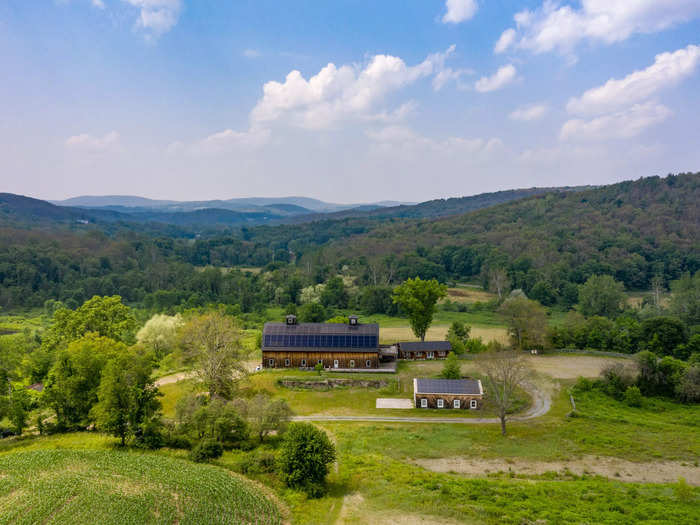
Schlein describes himself as more of a developer than someone suited to run the operational side of a commercial moonshine-making business.
"As confident as I am in my vision and in my kind of execution of the building and the development of the site as it stands now, I know my limitations," he added.
As Schlein sees it, a new owner could come in and make Harvest Homestead run the way he said it should be run, either as a farm housing animals, a private property, or to distill moonshine as he has done.
"I can build a car, but I'm probably not the best driver, let's put it that way," Schlein said.
Popular Right Now
Popular Keywords
Advertisement